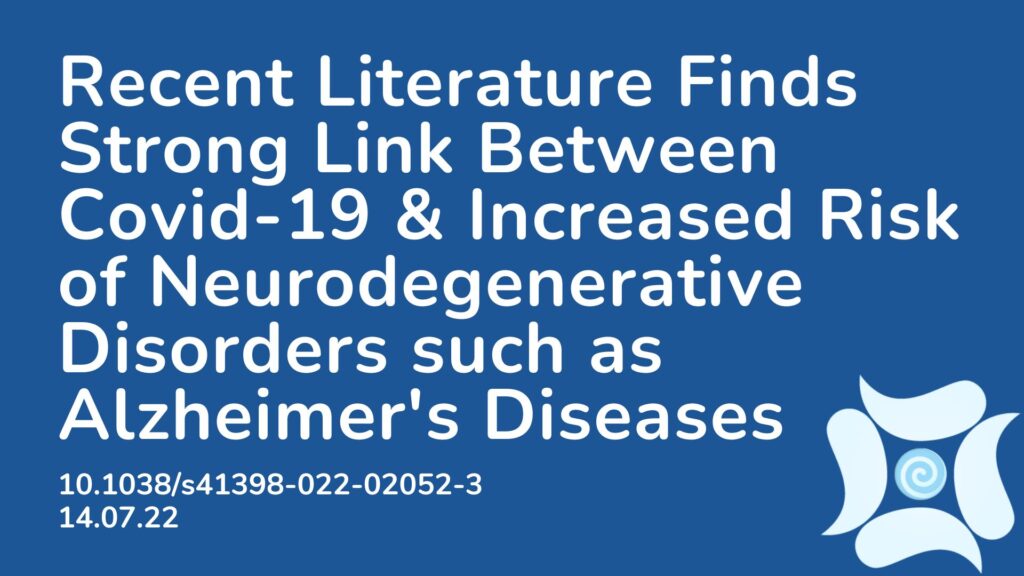Summary: Recent literature has shown a strong link between a Covid-19 infection and neurodegenerative characteristics, which has surfaced many questions as to whether Covid-19 increases the likelihood of being diagnosed with a neurodegenerative disorder. The aim of this paper was to analysis and explore the role of Covid-19 in the risk of neurodegenerative disorders and as a result found that Covid-19 was associated with higher risk of Alzheimer’s Disease (AD). The researchers also assessed the risk against other neurodegenerative diseases however did not identify any other correlations. The researchers explained this might be due to the unique pathogenesis of AD. These findings, although preliminary, help better understand the role of Covid-19 in neurodegenerative disorders and will facilitate ways in which further research or medication can alleviate complications associated with Covid-19.
Abstract:
Emerging evidence has suggested a close correlation between COVID-19 and neurodegenerative disorders. However, whether there exists a causal association and the effect direction remains unknown. To examine the causative role of COVID-19 in the risk of neurodegenerative disorders, we estimated their genetic correlation, and then conducted a two-sample Mendelian randomization analysis using summary statistics from genome-wide association studies of susceptibility, hospitalization, and severity of COVID-19, as well as six major neurodegenerative disorders including Alzheimer’s disease (AD), amyotrophic lateral sclerosis, frontotemporal dementia, Lewy body dementia, multiple sclerosis, and Parkinson’s disease. We identified a significant and positive genetic correlation between hospitalization of COVID-19 and AD (genetic correlation: 0.23, P = 8.36E–07). Meanwhile, hospitalization of COVID-19 was significantly associated with a higher risk of AD (OR: 1.02, 95% CI: 1.01–1.03, P: 1.19E–03). Consistently, susceptibility (OR: 1.05, 95% CI: 1.01–1.09, P: 9.30E–03) and severity (OR: 1.01, 95% CI: 1.00–1.02, P: 0.012) of COVID-19 were nominally associated with higher risk of AD. The results were robust under all sensitivity analyses. These results demonstrated that COVID-19 could increase the risk of AD. Future development of preventive or therapeutic interventions could attach importance to this to alleviate the complications of COVID-19.
Article Publication Date: 14.07.22
DOI: 10.1038/s41398-022-02052-3



